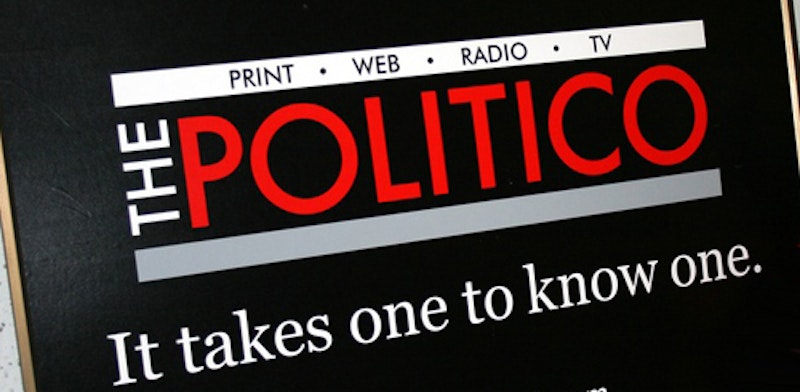It wasn't long ago that media watchers, from the crusty to the up and coming, were marking The Politico as a model for success: one half print, one half online, one half arena rock politics.
But Politico has been sliding down the pole of "news! right! now!"—the same one that quickly turned The Huffington Post and Drudge Report into large unintelligible masses of pseudo agitprop. The 50-point (no, 75-point) headline—or the siren—is king. Nothing could be closer to this truth than the piece that ran on POLITICO on Wednesday:
"Roman Polanski backers gave $34k to Barack Obama, DNC"
I'm not sure what bullet point in the memo linked above mentions equating support for child rapists with support for Obama, but this type of news piece—one that hardly deserves the "news" qualifier—isn't, say, not allowed, nor is it necessarily unfair. What this piece represents is a type of journalism that simply demands you click on the headline regardless of what lies behind it. It's one thing when it comes from The Huffington Post; as one of thousands of unpaid bloggers there, I don't expect every headline and columnist to be brimming with relevant and hard-hitting news. But Politico built its reputation by putting fresh topsiders on the ground and cultivating solid investigative reporting.
No one denies that modern times have called for a recalibration of any given news outlet's business model. But this Polanski piece is so lazily inflammatory, so lazily lazy, that it represents what will turn Politico's front page into something more akin to CNN than the New York Times.
Subjectively and anecdotally, I've watched Politico referenced less and less by other news outlets. My political readings take me from The American Scene to Andrew Sullivan, Talking Points Memo to Marc Ambinder, The Next Right to New Majority, and beyond. Rarely do I see a link to a Politico item that isn't done in chastisement, with the rare exceptions of Ben Smith and Mike Allen.
Politico was once on the path to subverting the mainstream media pecking order with its under-the-radar reporting and its impressive web presence. But as the Polanski headline exemplifies, they've become complacent, and now seek mere sensationalism where they used to seek breaking news.
The force behind the above headline is one of the oldest—and most thoroughly disproven—in the land: correlation is causation. The article doesn't come out and say a greater connection exists between President Obama and Roman Polanski other than a handful of donors, but the presumption is transparent. The template for this kind of story—look at this random connection! And that one! And that one!—is one reason that network news and many newspapers are now little more than elaborate megaphones for the shrill.

